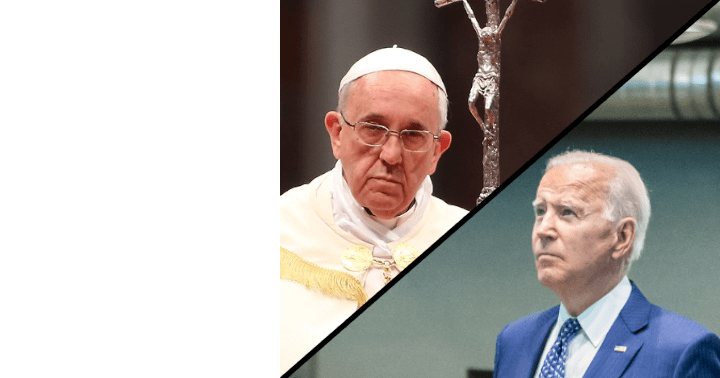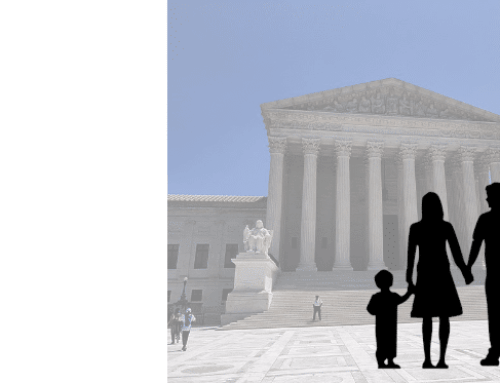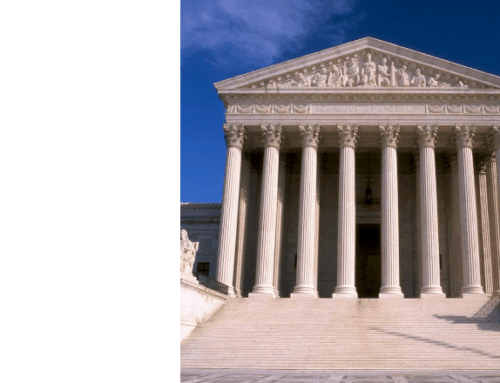The two most powerful Catholics in the world, the pope and the president, are increasingly critical of Israel’s response to the October 7 terrorist attack by Hamas on Israeli civilians. This, in turn, has led them to come under fire for their response.
On December 17, Pope Francis addressed reports that Israel Defense Forces (IDF) shot and killed a mother and daughter inside the Holy Family Parish in Gaza the day before. The pope noted that “unarmed civilians are targets for bombs and gunfire” in Gaza. “This is terrorism and war,” he said. “Yes, it is war. It is terrorism.”
Subsequently, the IDF denied this story. It said it had been contacted by church representatives about an incident at Holy Family Parish, but “no reports of a hit on the church, nor civilians being injured or killed, were raised.” It emphasized that “The IDF takes claims regarding harm to sensitive sites with the utmost seriousness—especially churches—considering that Christian communities are a minority group in the Middle East.”
Let’s hope the IDF is right. We await more evidence. But in the meantime, it is never wise to conflate terrorism and war. Terrorism is the intentional killing of innocents and is always wrong. War, as the Catholic Church has long acknowledged, while never desirable, may be a just response in certain circumstances.
Dating back to the fourth century, St. Augustine outlined circumstances where war is morally justifiable. This was the beginning of the Church just war doctrine. On October 16, I examined conditions in the Israel-Hamas war and concluded that Israel had met the criteria for a just war.
Pope Francis evidently disagrees. He reportedly told Israeli President Isaac Herzog that it is “forbidden to respond to terror with terror.” Because of his conflation of terrorism with war, it appears that any military response by the IDF constitutes terrorism. If that is the case, the term has been emptied of its meaning. Terrorism, it must be said, is not a synonym for war.
This appears to put the pope at odds with the just war doctrine as stated by the Catechism of the Catholic Church. The Catechism says that although working for peace is a must, “as long as the danger of war persists and there is no international authority with the necessary competence and power, governments cannot be denied the right of lawful self-defense, once all peace efforts have failed.”
Last year, the pope spoke more forcefully about this subject. On March 16, 2022, he said the following.
“There was a time, even in our Churches, when people spoke of a holy war or a just war. Today we cannot speak in this manner. A Christian awareness of the importance of peace has developed. Wars are always unjust since it is the people of God who pay.”
A more direct rejection of Church teaching on this subject would be impossible to make. The pope’s comments are unequivocal.
In October, after Hamas started the war, President Biden criticized Israel for its retaliatory strikes. Following the massive killing of innocents by Hamas terrorists, the president accused “extremist settlers” in Israel of “pouring gasoline” on the fire.
Last month, referring to the early stages of the war, Biden claimed Israel was “indiscriminate” in its response to Hamas. He repeated that charge at a private fundraiser in Washington, D.C. on December 8, accusing Israel of “indiscriminate bombing” in Gaza.
Biden’s accusation is a serious matter. We know that Hamas is using innocent Palestinians as human shields, making sure its tunnels are protected. Does the president believe that the IDF is not exercising restraint and is simply firing away at any and all targets?
What the pope and the president have to say about war carries great moral weight. This makes it incredibly important for them to make sure that their comments are based on the empirical evidence.







